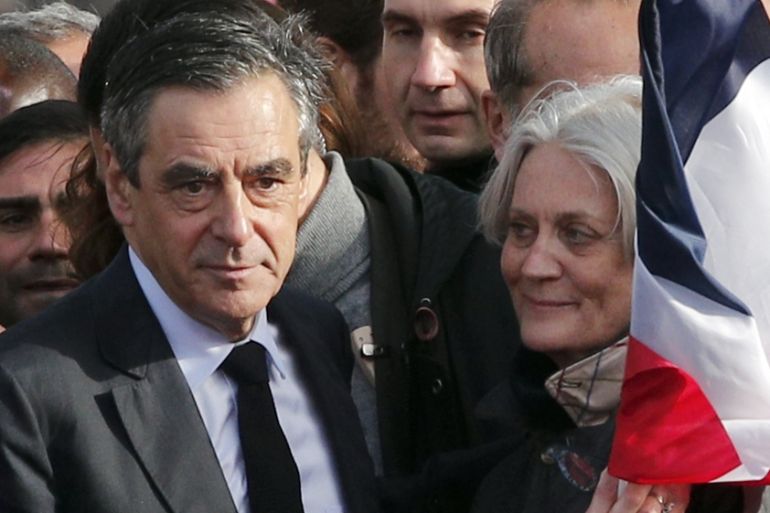Profile: Who is Francois Fillon?
Fillon faces charges of misuse of public funds after accusations he made payments to his wife for work she did not do.

Francois Fillon has come a long way since his surprise victory in the presidential primaries held by the centre-right The Republicans party last year, but not in the way he would have liked.
In the contest to become the conservative party’s presidential candidate, Fillon saw off competition from heavyweights including former president Nicolas Sarkozy and former prime minister Alain Juppe, but now faces calls to step aside amid an ever-escalating embezzlement scandal.
“One cannot lead France if one is not irreproachable,” Fillon, himself a former prime minister, told Juppe during the debates that preceded the primaries; words that are today used against him with a heavy dose of irony.
OPINION: Why the French elections will change the face of Europe
Fillon is accused of paying his wife Penelope hundreds of thousands of euros over eight years under the guise of employing her as a member of his office.
The presidential candidate has accused those pursuing the charges of carrying out a “political assassination”, but authorities have charged him with “misuse of public funds and misuse of corporate assets.”
Following the scandal, Fillon’s poll numbers have seen him slide from a front runner with about a quarter of the vote, to third-place with under 20 percent.
Fiscal conservatism
Born in 1954, Fillon’s career started in law before he quickly moved into politics, serving in several ministerial roles from the 90s and eventually as prime minister under Sarkozy between 2007 and 2012.
His platform is marked by his economic liberalism and Catholic faith, favouring fiscal conservatism, cuts to public spending, and the raising of the retirement age.
Fillon opposes gay marriage and adoption by same-sex couples.
On Islam, Fillon has called for a crackdown on Salafism and what he describes as “Islamic totalitarianism”.
He has called for the monitoring of mosques and for a review of France’s relations with Gulf states such as Saudi Arabia and Qatar.
Curiously for someone so entrenched in the French establishment, Fillon is an advocate of stronger ties with Moscow and the lifting of sanctions.
That has led to questions being asked about his ties to the country and its president, Vladimir Putin.
As his popularity begins to wane amid the scandals, Fillon has been resolute in standing his ground and has refused to drop out of the race.
He defied the polls in the primaries, but that was before the scandal that has consumed his subsequent campaign.
A Fillon presidency would be a significantly braver bet today than it would have been only a few months ago.